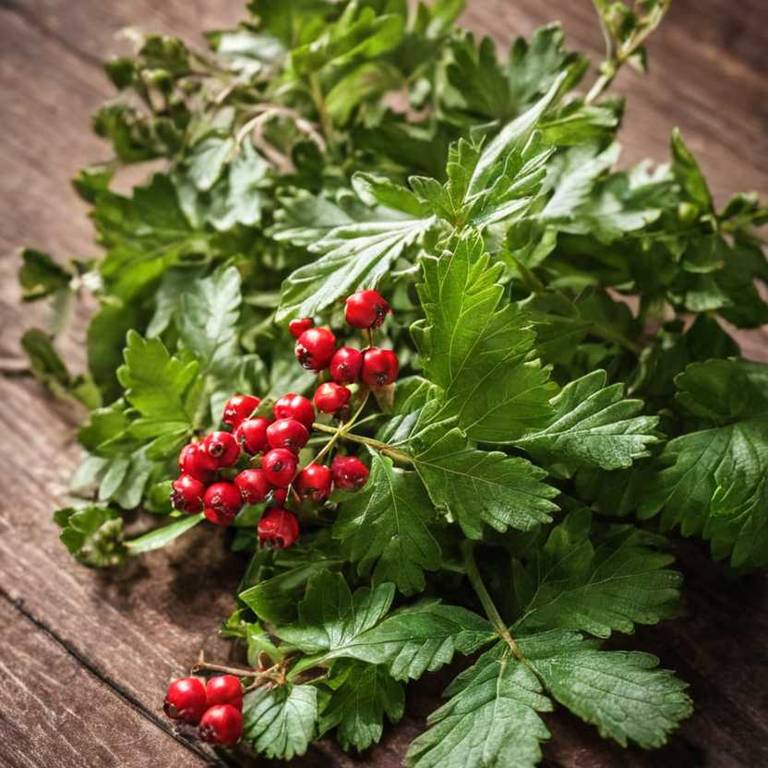By Leen Randell
Updated: Jul 06, 2024
What Are The Medicinal Properties Of Crataegus × Bornmuelleri (Hawthorn)?

Crataegus × bornmuelleri, also known as hawthorn, has health benefits such as improving cardiovascular health and reducing blood pressure.
The medicinal constituents of hawthorn include flavonoids, oligomeric proanthocyanidins, and triterpenoid acids, which are responsible for its therapeutic effects. These constituents are often extracted and used in medicinal preparations such as capsules, tablets, and tea. While generally considered safe, hawthorn may cause side effects like dizziness, nausea, or allergic reactions in some individuals.
Precautions should be taken by individuals with certain medical conditions, such as kidney or liver disease, or those taking certain medications, before using hawthorn.
This article explains the health benefits, active constituents, medicinal preparations, possible side effects, and precautions related to Crataegus × bornmuelleri.
- What are the health benefits of Crataegus × bornmuelleri?
- What are the active constituents of Crataegus × bornmuelleri?
- What are the medicinal preparations of Crataegus × bornmuelleri?
- What are the possible side effect of using Crataegus × bornmuelleri improperly?
- What precautions to take when using Crataegus × bornmuelleri medicinally?
What are the health benefits of Crataegus × bornmuelleri?
Crataegus × bornmuelleri, also known as hawthorn, has health benefits such as lowering blood pressure, improving heart health, and reducing the risk of cardiovascular disease.
It is rich in antioxidants, flavonoids, and oligomeric proanthocyanidins, which contribute to its therapeutic properties.
Studies have shown that hawthorn extracts can help reduce symptoms of angina and may also improve lipid profiles and exercise tolerance in individuals with heart conditions.
Here's a detailed article about the 10 health benefits of Crataegus × bornmuelleri.
What are the active constituents of Crataegus × bornmuelleri?
Crataegus × bornmuelleri, also known as hawthorn, has active constituents such as flavonoids, oligomeric proanthocyanidins (OPCs), and triterpenoids.
These compounds contribute to its cardiovascular benefits, including reducing blood pressure and enhancing myocardial function.
Additionally, the fruit's flavonoid content is responsible for antioxidant effects, while the OPCs help protect against LDL cholesterol oxidation, further contributing to the plant's reputation for promoting cardiovascular health.
Here's a detailed article about the 10 active constituents of Crataegus × bornmuelleri.
What are the medicinal preparations of Crataegus × bornmuelleri?
Crataegus × bornmuelleri, also known as hawthorn, has medicinal preparations such as teas, tinctures, and capsules that are commonly used to treat cardiovascular diseases.
The berries, leaves, and flowers of the plant are used to make these preparations, which are rich in flavonoids, phenolic acids, and other bioactive compounds.
These preparations are believed to have vasodilatory, anti-inflammatory, and antioxidant effects, which can help to lower blood pressure and improve overall cardiovascular health.
Here's a detailed article about the 10 medicinal preparations of Crataegus × bornmuelleri.
What are the possible side effect of using Crataegus × bornmuelleri improperly?
Improper use of Crataegus × bornmuelleri, also known as hawthorn, increases the chances of experiencing side effects such as dizziness, nausea, and gastrointestinal upset.
Long-term use can also cause interactions with certain medications, including blood thinners and diabetes medications. In rare cases, high doses of hawthorn may lead to more serious side effects, including irregular heartbeat and kidney problems.
Consultation with a healthcare professional is recommended to minimize potential risks.
Here's a detailed article about the 10 most common side effects of Crataegus × bornmuelleri.
What precautions to take when using Crataegus × bornmuelleri medicinally?
Before using Crataegus × bornmuelleri, also known as hawthorn, for medicinal purposes, you must take precautions such as consulting with a healthcare professional, especially if you have pre-existing medical conditions or take prescription medications.
Hawthorn can interact with blood thinners, diabetes medications, and certain cardiovascular drugs, and may also exacerbate conditions like hypertension or hypoglycemia.
Pregnant or breastfeeding women should also avoid using hawthorn.
Here's a detailed article about 10 precautions to take when using Crataegus × bornmuelleri.